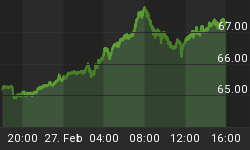Below is an excerpt from a commentary originally posted at www.speculative-investor.com on 13th November 2011.
This is a point we touched on in a couple of earlier commentaries, but it is important enough to reiterate. The point is that the sovereign debt crisis began in Europe because the countries of the euro-zone (EZ) do not have captive central banks. A captive central bank is one that stands ready, willing and able to monetise all government debt should it become difficult or impossible to find other buyers for the debt.
A government with a captive central bank could always CHOOSE to directly default on its debt, but it will never be FORCED to do so because it will always have the option of selling more debt to the central bank in exchange for newly-created money. In other words, it will always have the option of going down the inflation path. The US federal government, for example, will never run short of dollars as long as the Fed exists. Earlier this year there was a brief period when it seemed as if the US government was in danger of running out of money, but this was just for show.
The US government's debt situation is only marginally better than that of Italy's government. Furthermore, Italy's government has a much healthier balance sheet than Japan's government. And yet, the 10-year bonds issued by Italy's government currently yield more than 6%, while the 10-year bonds issued by the governments of the US and Japan yield 2.0% and 1.0%, respectively. The critical difference is that the governments of the US and Japan have their own central banks whereas the government of Italy shares a central bank with 16 other European governments. Of greatest relevance, Italy shares a central bank with inflation-shy Germany.
By way of further explanation we point out that Italy's government could not attempt to inflate its way out of trouble without imposing a cost on German savers, and German savers, strangely enough, aren't keen on donating some of their purchasing power to a bailout of Italy (or, to put it more aptly, to a bailout of the Italian government's bondholders).
So, the buyers of Italian government bonds have to account for the risk that the Italian government will soon have to directly renege on its obligations. The buyers of US and Japanese government bonds do not face such a risk. To put it another way, Italian government bond yields are relatively high due to the realistic possibility of genuine deflation in that country, while US and Japanese government bond yields are relatively low because these governments, via their central banks, have unlimited ability to inflate.
This is contrary to the conventional wisdom that government bond yields in the US and Japan are currently low due to the threat of deflation. If the power to use the 'printing press' were taken away from these governments then deflation really would become probable and bond yields would move much higher as the market discounted the risk of direct default.
We aren't offering a free trial subscription at this time, but free samples of our work (excerpts from our regular commentaries) can be viewed at: http://www.speculative-investor.com/new/freesamples.html















